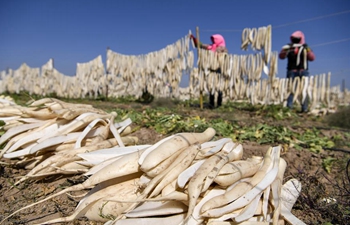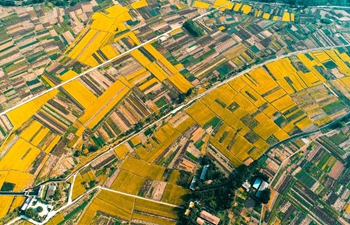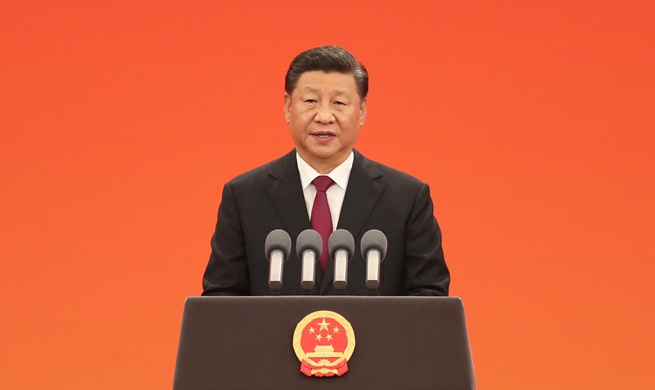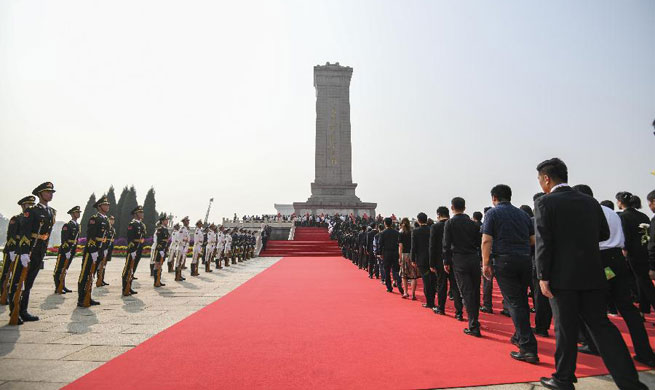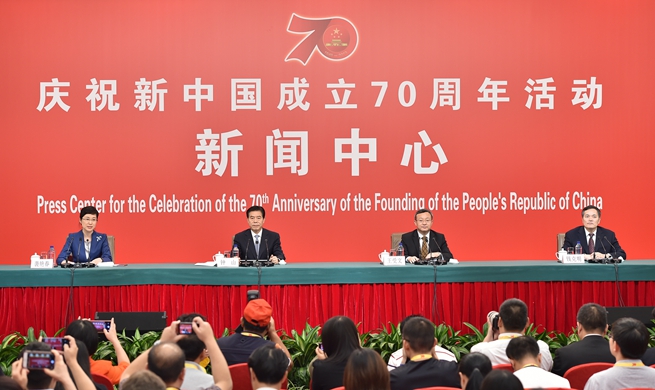KUALA LUMPUR, Sept. 30 (Xinhua) -- The China-proposed Belt and Road Initiative (BRI) will continue to be key economic driver with the expected global economic slowdown, Malaysian International Trade and Industry Deputy Minister Ong Kian Ming said on Monday.
Speaking at the World Bank's launch of a report on BRI in Malaysia, Ong explained the ongoing U.S.-China trade tensions would move China to seek new markets.
"This could have positive consequences from a global trade and investment standpoint, especially with the predicted slowdown in the global economy. China will want to seek new markets, new economic opportunities and new supply chains for its companies," he said.
Ong also said there is a need for countries participating in the BRI to gain a greater understanding of the initiative and to identify and benefit from the opportunities presented by it as it goes beyond just the scope of infrastructure development.
"The common understanding of BRI projects have to do with the infrastructure sector - roads, rails, ports and energy. But these projects also pave the way for other investments from Chinese companies, for example state owned-enterprises in the manufacturing sector as well as privately owned-enterprises in the services and construction sector, just to give a few examples," he said.
World Bank Group (WBG) representative to Malaysia and country manager Dr Firas Raad said the BRI and its associated economic corridors, have the potential to substantially boost trade, increase foreign investment, and improve living conditions for citizens in participating countries.
"Faster travel would also facilitate greater trade and investment. Countries along BRI corridors would see trade increase by up to 9.7 percent. The rest of the world would also benefit: global trade would increase between 1.7 percent and 6.2 percent. Countries that specialize in time-sensitive sectors, such as fresh fruits and vegetables, or that require time-sensitive inputs, like electronics, would be among the biggest winners," he said.
"Greater connectivity could bring substantial benefits, particularly for countries that have long been at the periphery of the global economy. Expanded trade and investment could raise incomes by up to 3.4 percent for countries along the corridors, although these gains would differ significantly across countries. BRI transport projects could boost world income by 0.7 to 2.9 percent and help lift 32 million people out of moderate poverty," he added.
The World Bank released the report in June, saying the "BRI offers opportunities for countries to improve their infrastructure, to increase trade and connectivity among themselves and the wider world, and thus to increase growth and reduce poverty."
The report also said that the BRI projects could contribute substantially to poverty alleviation in participating countries.




